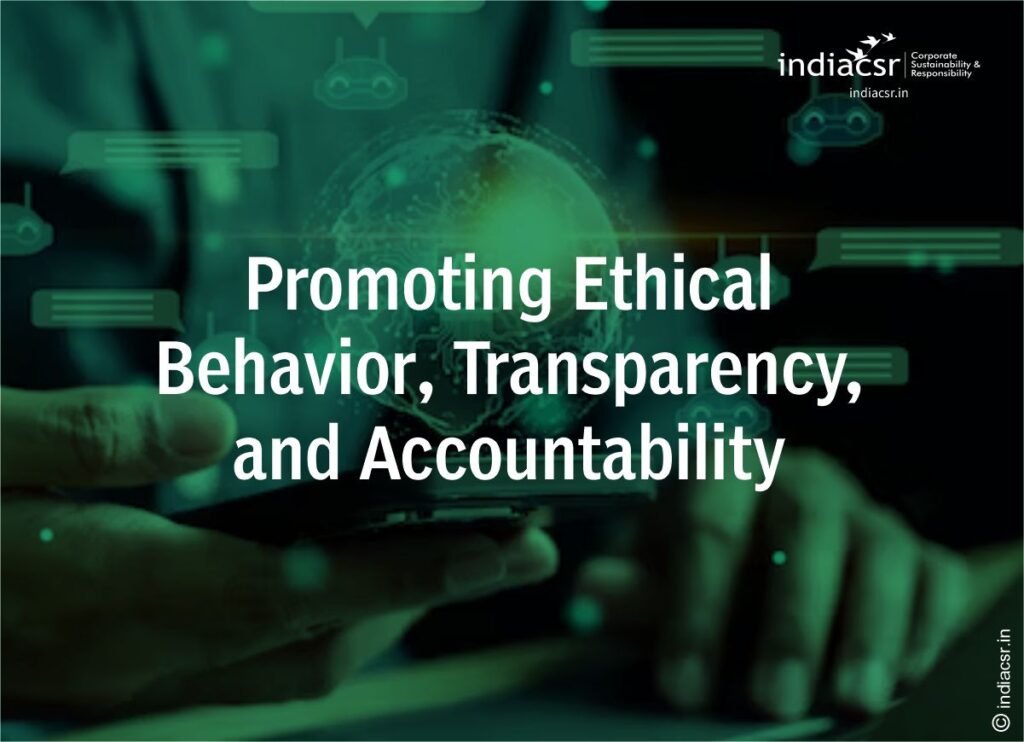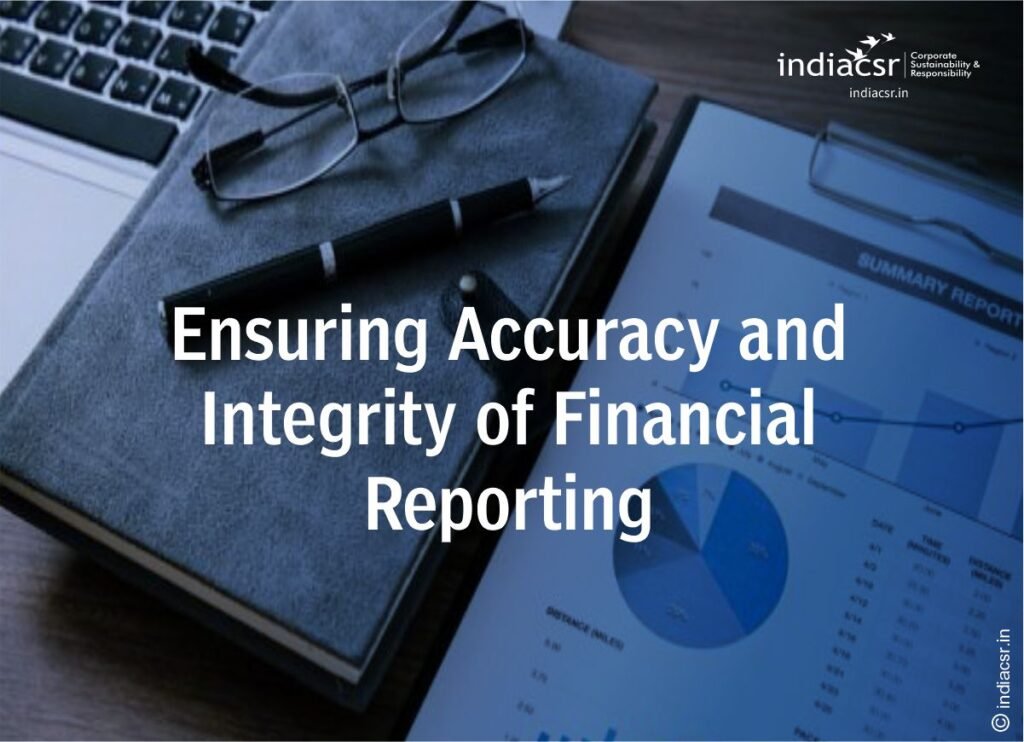Empowering directors through the power of inquiry in Corporate Governance. Here are the top 10 Questions that Every Director Must Ask Themselves
By Rusen Kumar
Corporate governance is the system of rules, practices, and processes by which a company is directed and controlled. It involves balancing the interests of various stakeholders, such as shareholders, management, customers, suppliers, financiers, government, and the community. It also covers the areas of environmental awareness, ethical behavior, corporate strategy, compensation, and risk management.
The role of directors in corporate governance is to oversee the company’s performance and ensure its accountability to shareholders and other stakeholders. Directors are appointed by the shareholders, who set the overall policy for the company and delegate some powers to the management.
Directors are responsible for:
- Setting the company’s vision, mission, values, and goals
- Approving the company’s strategic plan and budget
- Monitoring and evaluating the company’s financial performance and reporting
- Appointing, supervising, and remunerating the CEO and other senior executives
- Establishing and maintaining effective internal controls over financial reporting
- Ensuring compliance with applicable laws, regulations, standards, and codes of conduct
- Promoting and supporting diversity, equity, and inclusion initiatives within the organization
- Engaging with shareholders and other key stakeholders to understand their concerns and expectations
- Committing to continuous improvement and adaptation of corporate governance practices to meet evolving regulatory requirements and best practices
By performing their role effectively, directors can enhance the quality and effectiveness of the company’s governance and oversight functions. They can also foster a culture of excellence, trust, and collaboration within the company. They can also create long-term value and sustainability for the company and its stakeholders.
1. Understanding the Company’s Mission, Strategy, and Goals
Am I fully informed and knowledgeable about the company’s mission, strategy, and goals?

Every director must ask themselves if they are fully informed and knowledgeable about the company’s mission, strategy, and goals because they are responsible for overseeing the company’s performance and ensuring its accountability to shareholders and other stakeholders. They should also be aware of the legal framework that governs corporate governance, such as federal securities laws and state corporate laws. They should also follow the principles of corporate governance, such as fairness, transparency, responsibility, and risk management.
By asking themselves this question, directors can assess their own competence and commitment to the company’s vision and values. They can also identify any gaps or weaknesses in their knowledge or skills that may affect their ability to perform their duties effectively. They can also ensure that they are acting in the best interests of the company and its stakeholders.
2. Fulfilling Fiduciary Duties and Responsibilities
Do I understand and fulfill my fiduciary duties and responsibilities towards the company and its stakeholders?

Fiduciary duties of directors are the duties that arise from the relationship of trust and confidence between the directors and the company. They require the directors to act in good faith and in the best interests of the company and its stakeholders. They also include the following specific obligations:
- The duty to avoid conflicts of interest: Directors should not get involved in any situation that may create a conflict between their personal interests and the interests of the company.
- The duty to not exceed the company’s powers: Directors should act within the scope of their authority as conferred by the company’s articles of association and the law.
- The duty to account for secret profits: Directors should not make any unauthorized profit from their position or use any confidential information for their own benefit.
- The duty of confidentiality: Directors should not disclose any confidential information about the company or its affairs to anyone without proper authorization.
By asking themselves this question, directors can ensure that they are fulfilling their fiduciary duties and responsibilities towards the company and its stakeholders. They can also avoid any breach of trust or loyalty that may expose them to legal liability or damage the reputation of the company. They can also demonstrate their integrity and professionalism as directors.
3. Evaluating Executive Team Performance and Company Performance
How effectively am I overseeing and evaluating the performance of the executive team and the company as a whole?

Overseeing and evaluating the performance of the executive team is one of the key responsibilities of the board of directors. It involves ensuring that the executive team is aligned with the company’s mission, vision, values, and goals, and that they are delivering results that meet or exceed the expectations of the board and the stakeholders.
Some of the ways that directors can oversee and evaluate the performance of the executive team are:
- Setting clear and measurable objectives and indicators for the executive team that are linked to the company’s strategic plan and budget.
- Conducting regular performance reviews and feedback sessions with the executive team, either individually or collectively, to assess their progress, achievements, challenges, and areas for improvement.
- Providing coaching, mentoring, recognition, and support to the executive team to help them develop their skills, competencies, and leadership potential.
- Monitoring the executive team’s compliance with the company’s policies, procedures, and ethical standards, and ensuring that they act in the best interests of the company and its stakeholders.
- Visiting the field and witnessing the executive team and their colleagues at work firsthand, to observe how they interact with peers, subordinates, customers, suppliers, and other stakeholders.
- Soliciting feedback from other sources, such as employees, customers, suppliers, partners, regulators, and external auditors, to gain a broader perspective on the executive team’s performance and impact.
By asking themselves this question, directors can ensure that they are effectively overseeing and evaluating the performance of the executive team and holding them accountable for their results. They can also identify any gaps or issues that may affect the executive team’s performance and take corrective actions as needed. They can also foster a culture of excellence, trust, and collaboration within the executive team and across the company.
4. Promoting Ethical Behavior, Transparency, and Accountability
Am I actively promoting a culture of ethical behavior, transparency, and accountability within the organization?

Promoting a culture of ethical behavior, transparency, and accountability within the organization is one of the essential duties of directors. It involves creating and maintaining an environment that encourages and supports employees to act with honesty, integrity, and respect for the company’s values, policies, and stakeholders.
Some of the ways that directors can promote a culture of ethical behavior, transparency, and accountability are:
- Setting an example by modeling ethical conduct and decision-making in their own actions and interactions with others.
- Establishing clear and consistent ethical standards and expectations for the executive team and the entire organization, and communicating them effectively and frequently.
- Providing regular training and education on ethics and compliance issues, and ensuring that employees have access to relevant resources and guidance.
- Encouraging open and honest communication and feedback among employees, managers, and directors, and creating channels for reporting and addressing any ethical concerns or violations.
- Recognizing and rewarding ethical behavior and performance, and holding accountable those who fail to meet the ethical standards or engage in misconduct.
- Monitoring and evaluating the organization’s ethical performance and culture, and taking corrective actions as needed to address any gaps or issues.
By asking themselves this question, directors can ensure that they are actively promoting a culture of ethical behavior, transparency, and accountability within the organization. They can also foster a positive reputation and trust among the company’s stakeholders, customers, suppliers, regulators, and society at large. They can also reduce the risks of ethical scandals, lawsuits, fines, or reputational damage that may harm the company’s performance and sustainability.
5. Active Participation in Board’s Activities
Do I actively participate in board discussions and provide valuable insights and perspectives?

Actively participating in board discussions and providing valuable insights and perspectives is one of the key responsibilities of directors. It involves contributing to the board’s collective decision-making process and bringing diverse and relevant knowledge, skills, and experience to the table.
Some of the ways that directors can actively participate in board discussions and provide valuable insights and perspectives are:
- Preparing well for board meetings by reading the agenda, reports, and other materials in advance, and doing any additional research or analysis as needed.
- Asking relevant and constructive questions that challenge assumptions, clarify issues, or stimulate debate.
- Sharing their opinions, views, and suggestions in a clear, concise, and respectful manner, and listening to and considering the opinions, views, and suggestions of others.
- Drawing on their expertise, background, network, or industry knowledge to offer insights and perspectives that may not be available to other directors or management.
- Supporting the board’s decisions once they are made, even if they differ from their own preferences or opinions.
By asking themselves this question, directors can ensure that they are actively participating in board discussions and providing valuable insights and perspectives. They can also enhance the quality and effectiveness of the board’s governance and oversight functions. They can also demonstrate their commitment and engagement to the board’s work and the company’s success.
6. Continuous Learning and Skill Enhancement as a Director
Am I continuously updating and enhancing my knowledge and skills to fulfill my role as a director?

Continuously updating and enhancing one’s knowledge and skills to fulfill one’s role as a director is one of the essential duties of directors. It involves keeping abreast of the latest trends, developments, and best practices in corporate governance, as well as the company’s industry, markets, competitors, and stakeholders.
Some of the ways that directors can continuously update and enhance their knowledge and skills to fulfill their role as a director are:
- Attending board education and training programs, seminars, workshops, or conferences that cover relevant topics such as governance, strategy, risk management, finance, ethics, or compliance.
- Reading books, articles, reports, newsletters, or blogs that provide insights and information on corporate governance and the company’s industry or sector.
- Joining professional associations, networks, or forums that offer opportunities for learning, networking, or mentoring with other directors or experts.
- Seeking feedback from fellow directors, management, or external advisors on their performance and areas for improvement as a director.
- Engaging in self-reflection and self-assessment on their strengths and weaknesses as a director, and identifying and pursuing their learning goals and needs.
By asking themselves this question, directors can ensure that they are continuously updating and enhancing their knowledge and skills to fulfill their role as a director. They can also improve their competence and confidence as a director. They can also add more value to the board’s deliberations and decisions. They can also comply with any legal or regulatory requirements for director education or certification.
7. Engaging with Shareholders and Key Stakeholders
How well do I engage with shareholders and other key stakeholders to understand their concerns and expectations?

Engaging with shareholders and other key stakeholders to understand their concerns and expectations is one of the essential duties of directors. It involves fostering strong relationships and communication with the company’s owners, customers, employees, suppliers, regulators, communities, and other groups that have an interest or influence in the company’s activities and performance.
Some of the ways that directors can engage with shareholders and other key stakeholders are:
- Identifying who the company’s stakeholders are, what their interests and values are, and how they affect or are affected by the company’s operations and goals.
- Analyzing the level of influence, impact, and importance of each stakeholder group, and prioritizing them accordingly.
- Planning and implementing effective strategies and methods for engaging with each stakeholder group, such as meetings, surveys, reports, newsletters, or social media.
- Providing regular updates and feedback on the company’s performance, achievements, challenges, and plans to the stakeholders, and soliciting their input and opinions.
- Addressing any concerns or issues raised by the stakeholders in a timely and respectful manner, and seeking to resolve any conflicts or disputes.
- Recognizing and rewarding the contributions and support of the stakeholders to the company’s success.
By asking themselves this question, directors can ensure that they are engaging with shareholders and other key stakeholders to understand their concerns and expectations. They can also enhance the trust and loyalty of the stakeholders to the company. They can also gain valuable insights and perspectives from the stakeholders that may help improve the company’s strategy, performance, and sustainability.
8. Supporting Diversity, Equity, and Inclusion Initiatives
Am I promoting and supporting diversity, equity, and inclusion initiatives within the organization?

Promoting and supporting diversity, equity, and inclusion initiatives within the organization is one of the essential duties of directors. It involves creating and maintaining an environment that values and respects the differences and similarities among employees, customers, suppliers, and other stakeholders, and that ensures fair and equal opportunities and outcomes for everyone.
Some of the ways that directors can promote and support diversity, equity, and inclusion initiatives are:
- Setting an example by modeling inclusive behavior and language in their own actions and interactions with others.
- Establishing clear and consistent diversity, equity, and inclusion goals and expectations for the executive team and the entire organization, and communicating them effectively and frequently.
- Providing regular training and education on diversity, equity, and inclusion topics, such as unconscious bias, cultural competence, allyship, or anti-racism.
- Encouraging open and honest dialogue and feedback among employees, managers, and directors on diversity, equity, and inclusion issues and experiences.
- Recognizing and rewarding diversity, equity, and inclusion efforts and achievements, and holding accountable those who fail to meet the diversity, equity, and inclusion standards or engage in discrimination or harassment.
- Monitoring and evaluating the organization’s diversity, equity, and inclusion performance and culture, and taking corrective actions as needed to address any gaps or issues.
By asking themselves this question, directors can ensure that they are promoting and supporting diversity, equity, and inclusion initiatives within the organization. They can also enhance the innovation, creativity, productivity, and engagement of the workforce. They can also improve customer satisfaction, loyalty, and retention. They can also comply with any legal or regulatory requirements for diversity, equity, and inclusion.
9. Ensuring Accuracy and Integrity of Financial Reporting
Do I ensure the accuracy and integrity of financial reporting and disclosures?

Ensuring the accuracy and integrity of financial reporting and disclosures is one of the essential duties of directors. It involves verifying that the company’s financial statements and other financial information are prepared in accordance with the applicable accounting standards, laws, and regulations and that they reflect the true and fair view of the company’s financial position and performance.
Some of the ways that directors can ensure the accuracy and integrity of financial reporting and disclosures are:
- Establishing and maintaining effective internal controls over financial reporting, such as policies, procedures, systems, and checks and balances that prevent or detect errors, frauds, or irregularities.
- Overseeing and evaluating the performance and independence of the external auditors, who are responsible for auditing the company’s financial statements and expressing an opinion on their fairness and compliance.
- Reviewing and approving the company’s financial statements and other financial disclosures before they are released to the public or filed with the regulators, and ensuring that they are complete, accurate, consistent, and timely.
- Providing adequate and transparent disclosures on any significant accounting policies, estimates, judgments, or risks that may affect the quality or reliability of the financial reporting and disclosures.
- Monitoring and addressing any issues or concerns raised by the external auditors, regulators, or other stakeholders regarding the financial reporting and disclosures.
By asking themselves this question, directors can ensure that they are ensuring the accuracy and integrity of financial reporting and disclosures. They can also enhance the confidence and trust of the shareholders, investors, creditors, regulators, and other stakeholders in the company’s financial performance and governance. They can also comply with any legal or regulatory requirements for financial reporting and disclosures.
10. Commitment to Continuous Improvement in Corporate Governance Practices
Am I committed to continuous improvement and adaptation of corporate governance practices to meet evolving regulatory requirements and best practices?

Committing to continuous improvement and adaptation of corporate governance practices to meet evolving regulatory requirements and best practices is one of the essential duties of directors. It involves keeping abreast of the latest changes and developments in the corporate governance landscape, such as new laws, regulations, standards, or guidelines, and ensuring that the company’s governance policies and procedures are updated and aligned accordingly.
Some of the ways that directors can commit to continuous improvement and adaptation of corporate governance practices are:
- Attending corporate governance education and training programs, seminars, workshops, or conferences that cover relevant topics such as governance trends, challenges, or best practices.
- Reading books, articles, reports, newsletters, or blogs that provide insights and information on corporate governance issues and developments.
- Joining professional associations, networks, or forums that offer opportunities for learning, networking, or benchmarking with other directors or experts on corporate governance matters.
- Seeking feedback from fellow directors, management, external auditors, regulators, or other stakeholders on the company’s governance performance and practices, and identifying and pursuing areas for improvement.
- Engaging in self-reflection and self-assessment of their strengths and weaknesses as a director in terms of corporate governance knowledge and skills, and setting and achieving their learning goals and needs.
By asking themselves this question, directors can ensure that they are committing to continuous improvement and adaptation of corporate governance practices to meet evolving regulatory requirements and best practices. They can also enhance the quality and effectiveness of the company’s governance and oversight functions. They can also demonstrate their leadership and professionalism as directors. They can also comply with any legal or regulatory requirements for director education or certification.
Dear Reader, You have reached the end of our article journey, and we want to extend our gratitude for accompanying us on this exploration. We hope that the words you’ve encountered have sparked new ideas, inspired fresh perspectives, and expanded your understanding of the subject matter. Kindly share the article within your network.
CopyRight @ India CSR
About the Author

Rusen Kumar is the editor at India CSR. He is known as a thought leader in the area of corporate sustainability and responsibility (CSR). He wrote thousands of articles in the area of CSR, Sustainability and Corporate Governance.
—





















